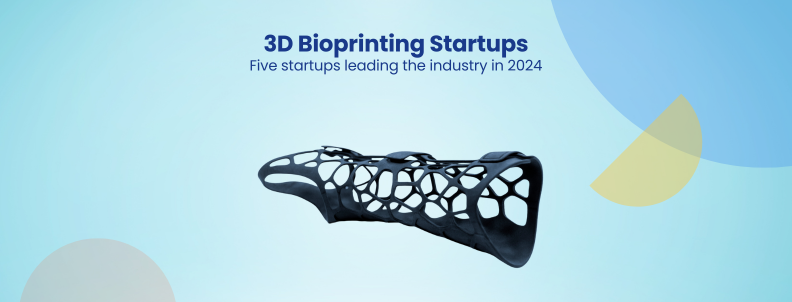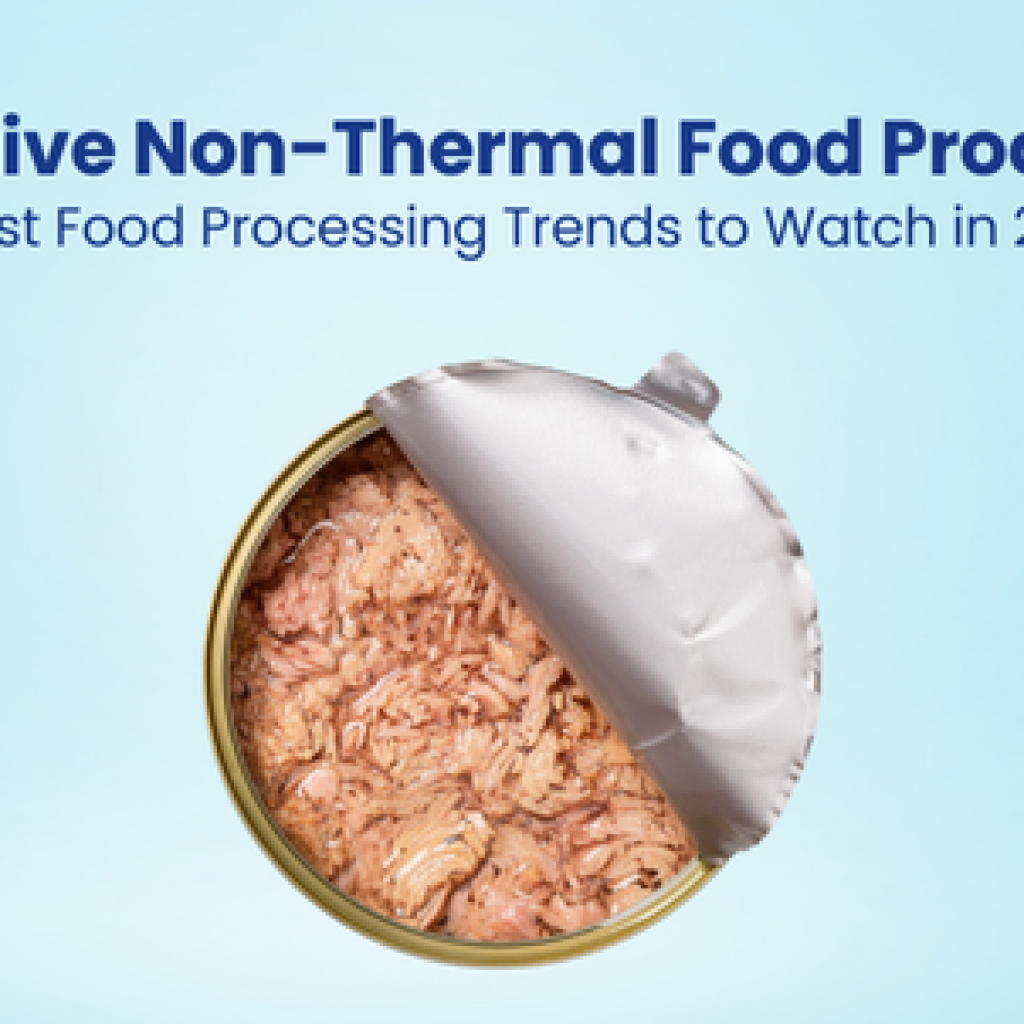The current drug development often relies on animal models or 2D cell cultures, leading to high trial failure rates due to inaccuracies in representing human physiology. Further, the growing need for personalized medicine demands models that mimic individual patients’ conditions. 3D bioprinting startups address this issue by creating precise biological structures with living cells.
These startups’ innovative models enhance the reliability of preclinical drug testing, advancing medical research and expediting new treatment development.
This article spotlights five early-stage 3D bioprinting startups with significant growth potential in the next 2-3 years and game-changing technology for partnerships, collaborations, or acquisitions.
1. 4D Biomaterials
| Founding Year | 2018 |
| Headquarters | Nottingham, United Kingdom |
| Total Funding Amount | $2.1M |
| Last Funding Round/Amount | Seed round/£1.6M |
| Website | www.4dbiomaterials.co.uk |
| Innovative Tech | Provide 3D printing of high-resolution resorbable medical devices |
4D Biomaterials focuses on developing and commercializing 3D-printable resorbable biomaterials for medical applications.
Their technology is based on patented polycarbonate-urethane chemistry and is marketed under the brand name 4Degra®. These materials facilitate the 3D printing of high-resolution resorbable medical devices at the macro, micro, and nanoscale.

Most degradable materials break down from the inside out over time. However, 4Degra materials degrade differently. Their breakdown occurs gradually from the surface inwards, preventing the sudden collapse of the material’s structure. This surface erosion process is safer because any byproducts released as the material degrades come out slowly at lower levels rather than being released all at once at high concentrations.
The CEO, Philip Smith, has over 35 years of experience in the engineering and materials industries. He holds an MBA from the University of Warwick.
4D Biomaterials has raised a total of £2.1M in funding. Their latest funding was raised from a Seed round on Jul 28, 2021.
2. Next Big Innovation Labs
| Founding Year | 2016 |
| Headquarters | Karnataka, India |
| Total Funding Amount | Undisclosed |
| Last Funding Round/Amount | Undisclosed |
| Website | https://nextbiginnovationlabs.com/ |
| Innovative Tech | Develops low-cost 3D-printed prosthetics |
Next Big Innovation Labs (NBIL) harnesses 3D bioprinting technology to help solve the global shortage of organs for transplantation.
The startup builds 3D bioprinters called Trivima and is currently utilizing its patented technology, processes, and proprietary biomaterials to develop 3D bioprinted human skin known as Innoskin®️.

NBIL’s long-term vision is to create a versatile 3D bioprinting platform that leverages the company’s patented technologies, multidisciplinary team expertise, unique processes, and breakthrough biomaterials.
Piyush Padmanabhan, its co-founder and CEO, has a B.Tech in Biotechnology and has worked with companies like Roche and Biocon.
Intrigued by these innovative 3D bioprinting startups?
Subscribe for insights into more such MedTech startups that are solving core industry challenges.

3. SPEBIO
| Founding Year | 2020 |
| Headquarters | Pohang, South Korea |
| Total Funding Amount | Undisclosed |
| Last Funding Round/Amount | Pre-seed |
| Website | sphebio.com |
| Innovative Tech | uses 3D bioprinting to enable cell aggregation |
SPEBIO has developed a technology that uses 3D bioprinting to enable cell aggregation. It provides a platform technology that allows researchers to produce cell spheroids, aggregates, or clusters.
These cell spheroids can generate extracellular vesicles and therapeutic agents derived from the aggregated cells.

The startup’s technology platform can create complex biological structures using living cells, such as tissues and organs.
The technology has the potential to revolutionize healthcare, offering solutions for organ transplantation, drug testing, and disease modeling.
They offer two products: an Exosome for R&D and a skin booster for plastic surgery clinics. These cells can be customized per the consumer’s needs.
The CEO, Keunsun Ahn, is a Pohang University graduate with over a decade of experience in the field.
SPEBIO raised undisclosed funding from a pre-seed round on Sep 1, 2021.
4. Brinter
| Founding Year | 2018 |
| Headquarters | North Carolina, USA |
| Total Funding Amount | $2.2M |
| Last Funding Round/Amount | Seed round/$750K |
| Website | brinter.com |
| Innovative Tech | develops 3D bioprinted implants |
Brinter develops 3D bioprinted implants to replace conventional implants and restore damaged body parts. By advancing bioprinting technologies and increasing their applicable uses, Brinter aims to improve worldwide health and save lives.

The startup’s main product is the Brinter® Bioprinter, a multi-material printer that can be scaled up for mass production. The platform is unique in the medical market due to its high modularity and authentic printing capabilities. It offers a personalized medicine approach using the patient’s cells and the body’s repair mechanisms.
The CEO, Tom Alapaattikoski, is a serial entrepreneur with 15 years of experience and a postgraduate degree from Stanford School of Business.
Brinter has raised a total of $2.2M in funding. Their latest funding came from a Seed round on February 16, 2023.
5. VoxCell BioInnovation
| Founding Year | 2020 |
| Headquarters | Victoria, Canada |
| Total Funding Amount | $1.7M |
| Last Funding Round/Amount | Seed round |
| Website | voxcellbio.com |
| Innovative Tech | makes vascularized cancer tissue models |
VoxCell BioInnovation makes vascularized cancer tissue models for the drug development industry and oncology research.
The startup offers three core products: Universal Bioinks™, Tissue Models, and a high-resolution 3D Bioprinter. These products are designed to mimic human-like cancer tissues that researchers can use for preclinical testing.

They aim to increase the accuracy between lab data and clinical trials, decreasing the time and costs related to drug development processes. Furthermore, their tissue printing technology can reduce the number of animal models used during drug testing.
The CEO, Karolina Valente, is a professor at the University of Victoria and holds a Ph.D. from the same institute.
VoxCell BioInnovation has raised a total of $1.7M in funding. Their latest funding was from a seed round on Jan 1, 2023.
Partner with more cutting-edge startups to tackle your industry’s toughest challenges and stay ahead of the competition.
Learn how GreyB discovers similar ventures that perfectly fit your needs.

Authored by: Hemanth Shenoy, Marketing.










